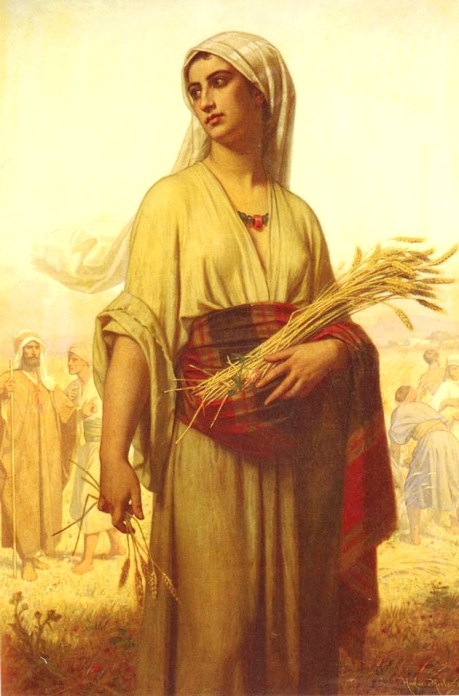Spiritual Sunday
Today’s liturgy readings include the story of Ruth, one of my favorite Biblical stories. Of course, as a child I didn’t understand what exactly Ruth was doing when she crawled into bed with Boaz, but I loved her friendship with her mother-in-law and her journeying to a strange land.
John Keats’s mention of Ruth in “Ode to a Nightingale” enriches the poem for me, and the poem, in turn, enriches the story. The allusion occurs when Keats is trying to escape from his mortal sickness into the song of the nightingale, which comes to represent the world of art. Unfortunately, as he realizes in the subsequent stanza, the world of art cannot save him as he is brought back to this world.
Thou wast not born for death, immortal Bird!
No hungry generations tread thee down;
The voice I hear this passing night was heard
In ancient days by emperor and clown:
Perhaps the self-same song that found a path
Through the sad heart of Ruth, when, sick for home,
She stood in tears amid the alien corn;
The same that oft-times hath
Charm’d magic casements, opening on the foam
Of perilous seas, in faery lands forlorn.
As sad as the image of the homesick Ruth is, it is more sweet than sad. (“Our sweetest songs are those that tell of saddest thoughts,” Keats’s admirer Percy Shelley wrote.) We are enchanted with the image of Ruth, into which we pour our own memories of loneliness. Ruth takes on a new dimension for us.
But as sweet as it is to lose oneself in such sad stories, unfortunately the poet can’t close out the world in which he lives:
Forlorn! the very word is like a bell
To toll me back from thee to my sole self!
Adieu! the fancy cannot cheat so well
As she is fam’d to do, deceiving elf.
The one positive in the poem’s famous ending is that Keats finds himself caught somewhere between the dream and the reality. Reality isn’t the only reality:
Was it a vision, or a waking dream?
Fled is that music:—Do I wake or sleep?
Ruth’s story ended happily as she married Boaz and gave birth to Obed, King David’s grandfather. Keats died of his tuberculosis.
